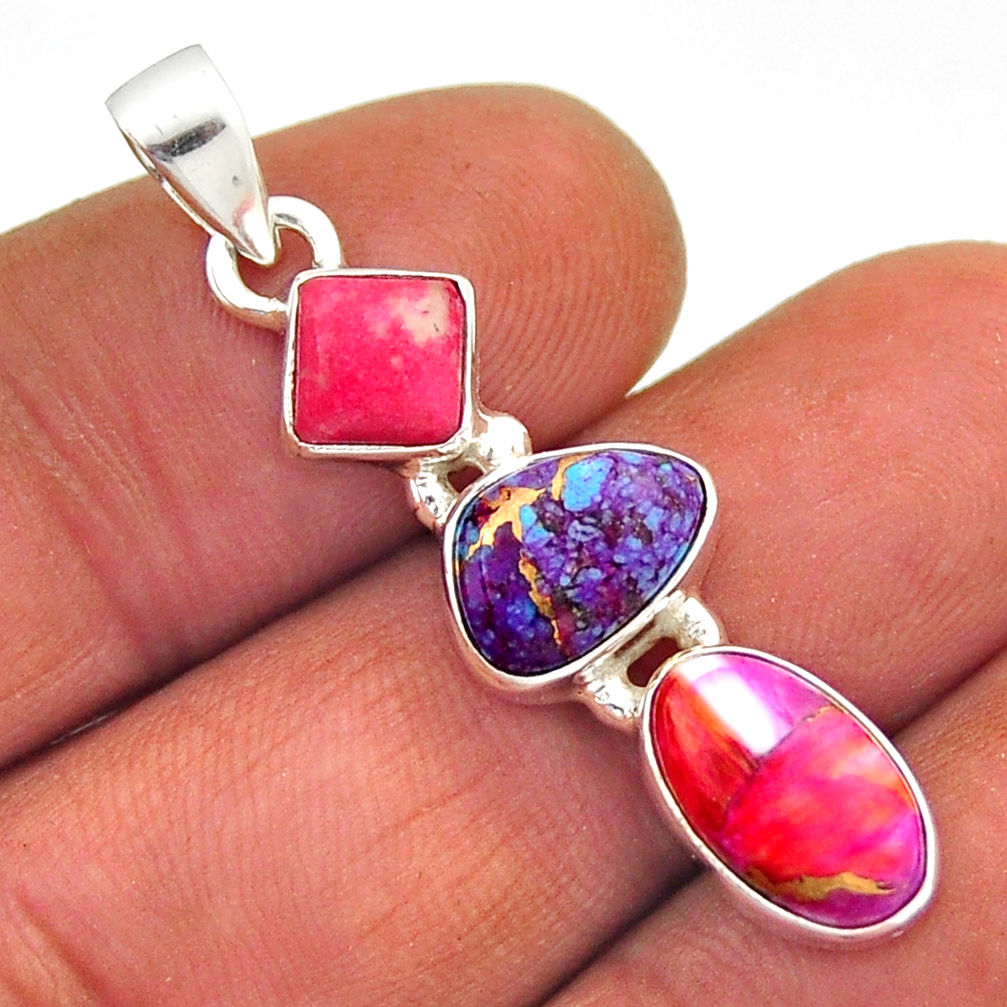Jewelry design is an ever-evolving art form, one that thrives on creativity, color, and contrast. Among the most captivating gemstones today is Spiny Oyster turquoise—a remarkable blend of oceanic and earthy beauty. Known for its vivid hues and organic texture, this gemstone has become a favorite of modern designers. But its true magic shines when paired with other gemstones that complement or contrast its striking appearance.
What Makes Spiny Oyster Turquoise Unique
Spiny Oyster turquoise isn’t a single gemstone but rather a composite of Spiny Oyster shell and turquoise, often stabilized together to form a vibrant mosaic of color and texture. Found primarily along the coasts of the Sea of Cortez and the Southwestern United States, Spiny Oyster comes in radiant shades of orange, red, and purple. When fused with turquoise, it creates an extraordinary visual interplay that reflects both the sea and the desert.
This gemstone symbolizes harmony between nature’s elements—land and ocean—making it a perfect centerpiece for artistic jewelry design.
The Power of Color in Gemstone Pairing
When designing with Spiny Oyster turquoise jewelry, understanding color theory is key. Its palette—ranging from vivid turquoise blues to fiery oranges and deep purples—offers endless creative opportunities.
- Complementary Colors: Pairing opposite hues on the color wheel, like turquoise and coral, enhances vibrancy and contrast.
- Analogous Colors: Combining similar tones, such as turquoise, teal, and green, creates a soothing, harmonious effect.
- Neutral Balancing: Metals like gold, silver, or white gold help tone down bold colors, ensuring the gemstone remains the focal point.
Perfect Gemstone Pairings with Spiny Oyster Turquoise
1. Coral – The Classic Companion
Coral’s warm, reddish-orange tones perfectly complement the cool blues of turquoise. This timeless Southwestern pairing symbolizes life, balance, and protection. When combined, they create pieces that are both earthy and regal.
2. Lapis Lazuli – Deep and Dramatic
The royal blue of lapis lazuli brings out the richness of turquoise while creating depth and sophistication. Together, they embody a luxurious yet natural aesthetic ideal for statement necklaces or bold cuff bracelets.
3. Mother of Pearl – Soft Elegance
For a touch of subtle refinement, mother of pearl enhances Spiny Oyster turquoise with its soft iridescence. This pairing works beautifully in fine jewelry, lending a sense of oceanic calm and modern elegance.
4. Amber – Warm and Earthy
Amber’s golden glow harmonizes with the orange and red tones in Spiny Oyster, creating a warm, vintage-inspired look. This duo evokes a sense of grounded energy and timeless charm.
5. White Topaz or Diamond – Modern Brilliance
To elevate Spiny Oyster turquoise stone into fine jewelry territory, pair it with clear gemstones like white topaz or diamonds. Their brilliance provides contrast and sophistication while letting the colorful centerpiece take center stage.
Design Tips for Harmonious Pairings
- Let the Turquoise Lead: Spiny Oyster turquoise is naturally bold, so use accent stones sparingly to avoid overpowering its natural beauty.
- Balance with Metal Choices: Gold adds warmth and luxury, while silver enhances its cool tones and Southwestern character.
- Play with Texture: Mixing polished gemstones with raw or matte materials creates dynamic contrast and visual interest.
- Keep Proportions in Mind: Small, subtle accent stones often highlight the beauty of turquoise better than large, competing gems.
The Symbolism Behind the Pairings
Beyond aesthetics, many jewelry lovers appreciate the spiritual and emotional meanings behind these gemstones.
- Turquoise is said to bring protection and healing.
- Spiny Oyster symbolizes strength, creativity, and transformation.
When combined with other stones like coral (energy), lapis (wisdom), or pearl (purity), they form pieces that carry both artistic and symbolic depth—jewelry with meaning as well as beauty.
Conclusion
The art of pairing Spiny Oyster turquoise ring with other gemstones lies in understanding balance—between color, texture, and energy. Whether set in fine gold or handcrafted silver, this vibrant gemstone shines alongside its companions, creating pieces that tell a story of nature’s brilliance and human creativity.
From traditional Southwestern designs to modern minimalist styles, Spiny Oyster turquoise continues to inspire jewelers and collectors alike, proving that the best art often emerges when worlds—like sea and stone—collide.

